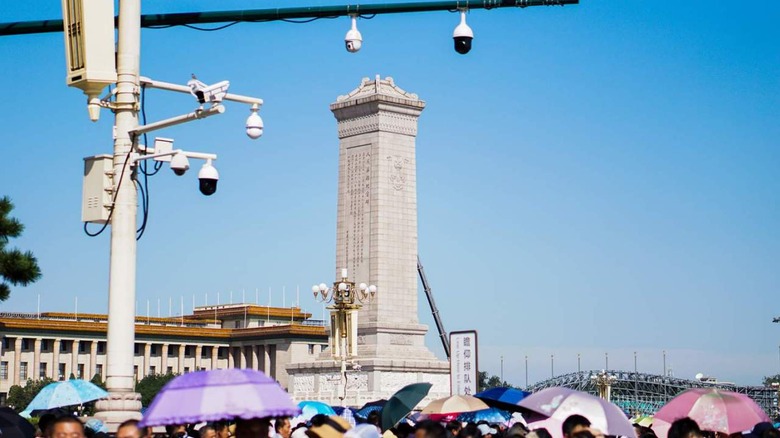Beijing Winter Olympics athletes warned to use burner phones: Here's why
China will be hosting the XXIV Olympic Winter Games in its capital Beijing starting February 4, 2022. Ahead of the multi-sport event, the country is taking excessive precautions to prevent the spread of the Omicron variant of COVID-19 by tightening restrictions and mass testing of citizens using unusual and uncomfortable methods (via Insider). To curb the spread of COVID-19 through the athletes arriving in the country, the Chinese authorities will use an app called My2022 for COVID monitoring and contact tracing.
Ahead of the games, however, many countries have expressed their concerns against China using athletes' smartphones for mass surveillance. After Canada, the Netherlands, and the UK, the US Olympic and Paralympic Committee has advised the visitors and participants to use easily disposable burner phones instead of their primary cell phones to avoid being tracked during their stay in the country, The Wall Street Journal reports.
Cybersecurity researchers second use of burner phones
These concerns raised by the US Olympic team are bolstered by a cybersecurity research firm, Citizen Lab, which notes the My2022 app lacks encryption features and can become a tool for wiretapping. The Chinese government has failed to take any action in this regard despite having been notified of these shortcomings. The firm has also recommended visitors to bring burner phones and create fresh email accounts for their visit, BBC reports.
The My2022 app facilitates real-time messaging, file transfers, and news updates about the Beijing Winter Olympics. Since common messaging apps such as WhatsApp, Telegram, and Facebook Messenger are banned in China, the app could be used by athletes for communication. Visitors are required to install the app at least 14 days before their arrival in the country to keep a daily track of their COVID-19 status.
2400+ keywords on the censorship list
The cybersecurity group also spotted a list of more than 2400 censored keywords in the app that can trigger the local authorities to monitor — and even prosecute anyone who uses these banned words. The mechanism is similar to censorship rules in local messaging apps and internet communications platforms like WeChat and QQ. These censorship rules legally bind the apps to monitor content and flag anything that may be offensive to or unacceptable to the Chinese authorities. Sometimes, these censorship lists are also preinstalled on phones made by Chinese manufacturers.
Although the list of censored keywords currently appears inactive, it contains references to the killing of pro-democracy protestors at Tiananmen Square, leaders of the Chinese Communist Party (CCP), the Chinese premier Xi Jinping, banned religious sect Falun Gong, and the Uyghur minorities in the Xinjiang province of Northwest China (via CitizenLab, linked above). Even more disconcerting — although not unusual in China — is the fact that this list also contains keywords such as "Dalai Lama" and "The Holy Quran."
China already loads foreigners' phones with spyware
Another cybersecurity organization, Internet 2.0, warns that many of the sponsors of the Beijing Winter Olympics 2022 are known to promote a "sophisticated and broad surveillance culture" in China. One of these companies, Qi-Anxin, was found to be capturing user data through its Virtual Private Network (VPN) tool. Under China's national security laws, the Chinese government can solicit this data.
Censorship and mass surveillance are not new in China and the country is infamous for not just thwarting dissent against the autocratic government but also anything that may not be in harmony with ultra-nationalism masquerading as populism. There have been several reports in the past, including one by Vice, stating that the moment a foreigner arrives in China, their phones scanned for any sensitive conversation and are then installed with spyware so the Chinese authorities can monitor their activities.
The country also uses facial recognition actively to identify citizens and keep a track of their activities. The degree of facial recognition-based tracking is much higher in the Xinjiang, where the Chinese authorities use technology extensively to monitor the Uyghur Muslim community as well as confine them in the name of "containing terrorism," as the Human Rights Watch reports.


